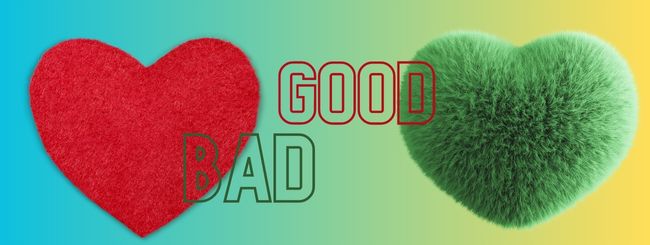בס”ד
אָמַר לָהֶם, צְאוּ וּרְאוּ אֵיזוֹהִי דֶרֶךְ יְשָׁרָה שֶׁיִּדְבַּק בָּהּ הָאָדָם. רַבִּי אֱלִיעֶזֶר אוֹמֵר, עַיִן טוֹבָה. רַבִּי יְהוֹשֻׁעַ אוֹמֵר, חָבֵר טוֹב. רַבִּי יוֹסֵי אוֹמֵר, שָׁכֵן טוֹב. רַבִּי שִׁמְעוֹן אוֹמֵר, הָרוֹאֶה אֶת הַנּוֹלָד. רַבִּי אֶלְעָזָר אוֹמֵר, לֵב טוֹב. אָמַר לָהֶם, רוֹאֶה אֲנִי אֶת דִּבְרֵי אֶלְעָזָר בֶּן עֲרָךְ מִדִּבְרֵיכֶם, שֶׁבִּכְלָל דְּבָרָיו דִּבְרֵיכֶם. אָמַר לָהֶם צְאוּ וּרְאוּ אֵיזוֹהִי דֶרֶךְ רָעָה שֶׁיִּתְרַחֵק מִמֶּנָּה הָאָדָם. רַבִּי אֱלִיעֶזֶר אוֹמֵר, עַיִן רָעָה. רַבִּי יְהוֹשֻׁעַ אוֹמֵר, חָבֵר רָע. רַבִּי יוֹסֵי אוֹמֵר, שָׁכֵן רָע. רַבִּי שִׁמְעוֹן אוֹמֵר, הַלֹּוֶה וְאֵינוֹ מְשַׁלֵּם. אֶחָד הַלֹּוֶה מִן הָאָדָם, כְּלֹוֶה מִן הַמָּקוֹם בָּרוּךְ הוּא, שֶׁנֶּאֱמַר (תהלים לז) לֹוֶה רָשָׁע וְלֹא יְשַׁלֵּם, וְצַדִּיק חוֹנֵן וְנוֹתֵן. רַבִּי אֶלְעָזָר אוֹמֵר, לֵב רָע. אָמַר לָהֶם, רוֹאֶה אֲנִי אֶת דִּבְרֵי אֶלְעָזָר בֶּן עֲרָךְ מִדִּבְרֵיכֶם, שֶׁבִּכְלָל דְּבָרָיו דִּבְרֵיכֶם
He [Rabban Yohanan] said unto them: go forth and observe which is the right way to which a man should cleave? Rabbi Eliezer said, a good eye; Rabbi Joshua said, a good companion; Rabbi Yose said, a good neighbor; Rabbi Shimon said, foresight. Rabbi Elazar said, a good heart. He [Rabban Yohanan] said to them: I prefer the words of Elazar ben Arach, for in his words your words are included. He [Rabban Yohanan] said unto them: go forth and observe which is the evil way which a man should shun? Rabbi Eliezer said, an evil eye; Rabbi Joshua said, an evil companion; Rabbi Yose said, an evil neighbor; Rabbi Shimon said, one who borrows and does not repay for he that borrows from man is as one who borrows from God, blessed be He, as it is said, “the wicked borrow and do not repay, but the righteous deal graciously and give” (Psalms 37:21). Rabbi Elazar said, an evil heart. He [Rabban Yohanan] said to them: I prefer the words of Elazar ben Arach, for in his words your words are included.
Now we know what a good heart is:
- A good eye – The eye reflects man’s soul. A person with a good eye views the world positively and with emunah; he sees blessings and beauty everywhere. He not only sees blessings but gives brachot to Hashem, also blesses others in the seeing that he wishes others goodness, success, health, etc.[1]
- A good companion/ friend – It is easy to complement or praise someone. It’s nice for the other person, but it often makes us feel good as well. It is more harder to give someone positive feedback. We are insecure because we are unsure whether the other person will enjoy it, whether the other person will find it pedantic or obnoxious. A good friend, on the other hand, is willing to offer constructive criticism when he observes his friend making a mistake or blunder..[2]
- A good neighbor – I’m not sure how it is in other languages, but we have a saying in the Netherlands: “Better a good neighbor than a distant friend.” Not only during the day, but even at night, a neighbor is always nearby. A nice neighbor is someone who is ready to help at any time of day. Begin with improving yourself, and then go on to your neighbor.
- A good foresight – Rabbi Shimon said: a person should always think ahead and contemplate what will be the results of his actions.[3] Think first, then act; listen first, then speak. We often act impulsively, but taking a step back and counting to ten before speaking or doing gives us time to consider whether we are acting for the purpose of heaven or for other causes. We must learn to speak and act in accordance with G-d’s will, which is not always simple, but practice makes perfect..
An evil heart does not seem so difficult to describe then. It seems to me the opposite of the above.
The mishnah appoints here:
- Evil Eye – someone who looks at his neighbor and is jealous, begrudging him things.
- Evil Companion/ friend – someone who only interacts with the other because he benefits from it himself.
- Evil Neighbor – he who does not want to help when his neighbor is in need.
- One who borrows but does not repay. Not supervising and overthinking your activities permits you to act unconsciously. We observe this when we borrow something from someone and, unknowingly, fail to return it. How frequently does someone borrow a pen from someone else in order to jot things down quickly, only to place the pen – as an automatism – in his own pocket? But when we recognize that this is theft and that it is a severe offense with serious implications, we become more vigilant. The sequel involves someone generously giving to charity. When this becomes an act in which you think more thoroughly about the give, you may give more effortlessly. G-d provides us with everything we require, as well as money that belongs to others. As a result, we borrow money from other people. So, when the opportunity occurs, it is appropriate to give it back to the other. Furthermore, the sages taught that when you give charity, G-d returns it to you, frequently to a greater extent. There are so many reasons to be generous.
Train your heart to be good.
By Angelique Sijbolts
Sources:
[1] Breslov Video from Rabbi Shalom Arush: Good Eye or Evil Eye?
[2] Bartenura on Pirkei Avot 2:9:2
[3] English Explanation of Pirkei Avot 2:9:2
© Copyright, all rights reserved. If you enjoyed this article, we encourage you to distribute it further.
